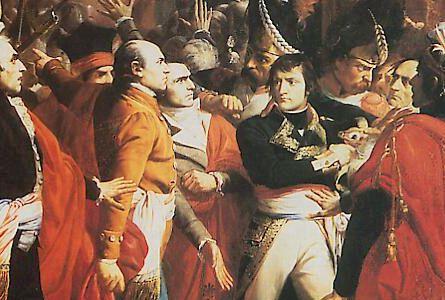“We all know that an angry electorate is a voting electorate”*…
Further to yesterday’s post…
The final vote tallies still aren’t known, but the media verdict of this presidential election is in: it’s 2016 all over again. Four years ago, in the hours after Donald Trump declared victory on the strength of 306 Electoral College votes and the ballots of nearly sixty-three million Americans, I wrote a column about the failures of the press throughout that campaign, and declared that “journalism’s moment of reckoning” had arrived. “Reporters’ eagerness first to ridicule Trump and his supporters, then to dismiss them, and finally to actively lobby and argue for their defeat have led us to a moment when the entire journalistic enterprise needs to be rethought and rebuilt,” I wrote then.
It is astonishing, today, how little we seem to have learned since. Once again, opinion polls were overhyped and under-scrutinized. Some of them were also wildly off—and, though that’s different from 2016, when the polls were largely accurate but widely misunderstood, it doesn’t let media organizations off the hook for their treatment of the numbers. Newsrooms leaned too heavily on polls as a substitute for on-the-ground reporting, and they were led astray. Journalists spent too much time talking to each other on Twitter, inhabiting an alternate algorithmic reality that bore little resemblance to the life of the country. And major media institutions made it all but impossible to envision that, despite the wealth of reporting on the president’s lies and his racism and his circus—nearly half the country remains beholden to the man and his beliefs. “We can’t go back to assuming, just because we think Donald Trump is an outlier, that he is not connecting to a lot of American people in ways that, frankly, a lot of us cannot understand,” Claire McCaskill, a former Missouri senator, said Wednesday morning on MSNBC. The feeling of déjà vu, and of lost journalistic opportunity, is inescapable…
Kyle Pope (@kylepope), editor of the Columbia Journalism Review on lessons unlearned: “What the polls show, and the press missed, again.”
On the problem(s) with polls, pair with “Of course Trump’s voters lie to pollsters. You call us all racists” (with an eye to the phenomenon it addresses– and the questions raised by the rationale it offers…)
For one (very compelling) account of why Pope’s project matters, see Fintan O’Toole’s “Democracy’s Afterlife.” (For more, see also Ron Brownstein, Roxane Gay, and George Packer on the same family of issues… there are lots of diagnoses abroad in the infosphere at the moment; these are among the best your correspondent has found.)
And for a resonant but different take on the necessary role of “honest journalism” going forward, see also Jay Rosen’s “America’s Press and the Asymmetric War for Truth.”
###
As we look more deeply, we might recall that it was on this date (18 Brumaire in the French Republican Calendar) in 1799 that thirty-year-old Corsican General Napoleon Bonaparte overthrew the Directory in France and established the Consulate, ending the power of the revolutionary oligarchy and creating himself as First Consul… or dictator.


You must be logged in to post a comment.